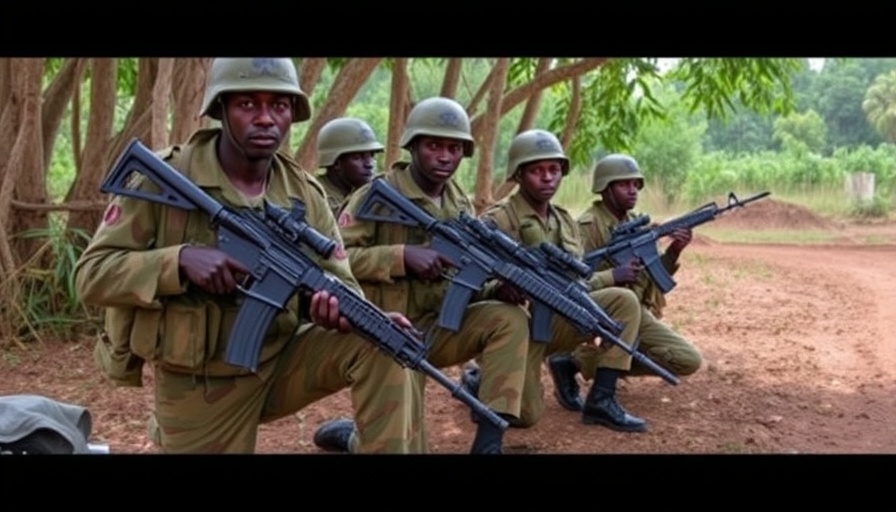
Continuing Violence in Mozambique: The Broader Implications
The recent killing of three Rwandan soldiers in Mozambique highlights the ongoing insurgency in the Cabo Delgado province. This violent episode is not just an isolated incident but part of a broader pattern of instability that threatens not only Mozambique's internal security but also its role in regional geopolitics.
Understanding the Conflict's Roots
Since 2017, Mozambique has faced increasing violence from Islamist militants, leading to thousands of deaths and displacing millions. The insurgency, initially linked to grievances over local poverty and disenfranchisement, has morphed into a larger conflict that attracts international jihadist groups. As Rwandan forces continue their military assistance to the Mozambican government, the situation raises questions about the effectiveness of foreign interventions in stabilizing the region.
African Unity in Times of Crisis
As the African Union steps up its commitment to addressing conflicts within its member states, the response to the insurgency in Mozambique could serve as a litmus test for the continent's collective security frameworks. The collaboration between Rwandan troops and the Mozambican government reflects a burgeoning trend of inter-African support against common threats—demonstrating an evolving dynamic in Africa's approach to security and governance.
Geopolitical Ramifications for Trade
The Cabo Delgado conflict comes at a time when Mozambique is on the verge of becoming a major player in the global liquefied natural gas market. However, insecurity in the region may deter foreign investment and undermine Mozambique's economic prospects. Business leaders and investors must consider the implications of ongoing violence on trade relations and investment opportunities in the country and the wider region.
Final Thoughts: The Need for Sustainable Solutions
As the situation evolves, it is crucial for policymakers to focus on comprehensive strategies that address not only the military aspects of insurgency but also the socio-economic factors that fuel unrest. By fostering dialogue, enhancing local governance, and investing in development programs, Africa can pave the way for long-term stability and economic growth.
 Add Row
Add Row  Add
Add 


 Add Row
Add Row  Add
Add 

Write A Comment